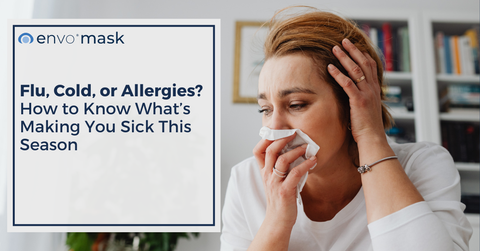news
Protecting Yourself During Wildfire Cleanup: Why Proper Safety Measures Are Crucial

Wildfires leave behind devastating destruction, and while the flames may subside, the dangers do not disappear. For those involved in cleanup efforts, protecting yourself from the hazardous aftermath is critical to safeguarding your health. Here's what you need to know about wildfire cleanup and how proper respiratory protection, including wearing an N95 mask, can make a difference.
What Lurks in the Ash and Air?
When wildfires blaze through natural and urban areas, they incinerate vegetation, buildings, and vehicles. The result is a toxic mixture of ash, dust, and debris that lingers long after the flames are extinguished. Common hazards include:
- Fine particulate matter (PM2.5 and smaller): Tiny particles that can penetrate deep into the lungs and even enter the bloodstream (Unites States Environmental Protection Agency 2024, “Particulate Matter (PM) Basics”).
- Toxic chemicals: Heavy metals and other hazardous materials from burned construction materials and electronics.
- Biological contaminants: Mold spores and bacteria can thrive in damp, post-fire environments.
- Volatile organic compounds (VOCs): Gases released from charred materials and smoldering debris.
The Health Risks: Short-Term and Long-Term Effects
Exposure to wildfire debris and particulates can pose both immediate and chronic health risks (United States Environmental Protection Agency 2024, “Health Effects Attributed to Wildfire Smoke”). Here’s a breakdown:
Short-Term Effects:
- Irritation of the eyes, nose, and throat
- Shortness of breath and coughing
- Worsening of asthma or other respiratory conditions
- Headaches and fatigue
Long-Term Effects:
- Increased risk of respiratory diseases such as chronic obstructive pulmonary disease (COPD)
- Potential for cardiovascular issues due to fine particulate matter entering the bloodstream
- Heightened cancer risk from prolonged exposure to toxic chemicals
- Chronic bronchitis or asthma exacerbation
Why an N95 Mask is a Must-Have
The Centers for Disease Control and Prevention (CDC) and the National Institute for Occupational Safety and Health (NIOSH) recommend using N95 respirators for wildfire cleanup. Unlike surgical masks or cloth face coverings, N95 respirators provide a minimum filtration efficiency of 95% for particles as small as 0.3 microns, effectively protecting against fine particulate matter that poses serious health risks.
To maximize protection, ensure your mask:
- Fits snugly: A tight seal around the nose and mouth prevents particles from bypassing the filter.
- Is certified: Look for the NIOSH certification on the mask packaging.
- Is not reused excessively: Replace your N95 mask if it becomes dirty, damaged, or difficult to breathe through.
Additional Safety Tips for Wildfire Cleanup
In addition to wearing an N95 mask, consider these precautions:
- Wear protective clothing: Gloves, long sleeves, and pants help minimize skin contact with hazardous materials.
- Avoid disturbing ash unnecessarily: Such as lightly misting surfaces with water before sweeping or wiping, to keep the ash from becoming airborne.
- Ventilate indoor spaces: Open windows and use HEPA filters to clean the air inside.
- Stay hydrated and take breaks: Cleanup efforts can be physically demanding, so listen to your body.
- Consult a professional: For significant debris or hazardous materials, hire licensed cleanup services.
The Role of envo masks in Cleanup Efforts
At envo mask, our priority is protecting those taking on the critical task of wildfire cleanup. Designed with both safety and comfort in mind, our advanced respirators feature NIOSH-approved filtration to ensure reliable protection. The gel seal offers a secure and comfortable fit, helping you stay focused and efficient throughout the cleanup process.
Moving Forward Safely
Wildfire cleanup is a vital step in rebuilding communities, but it’s crucial to prioritize your health throughout the process. By understanding the risks and using proper protective equipment like N95 respirators, you can mitigate the dangers of exposure to harmful particulates.
For more information, consult these resources:
Stay safe and prepared—envo mask is here to support you every step of the way.


